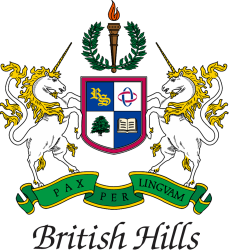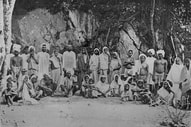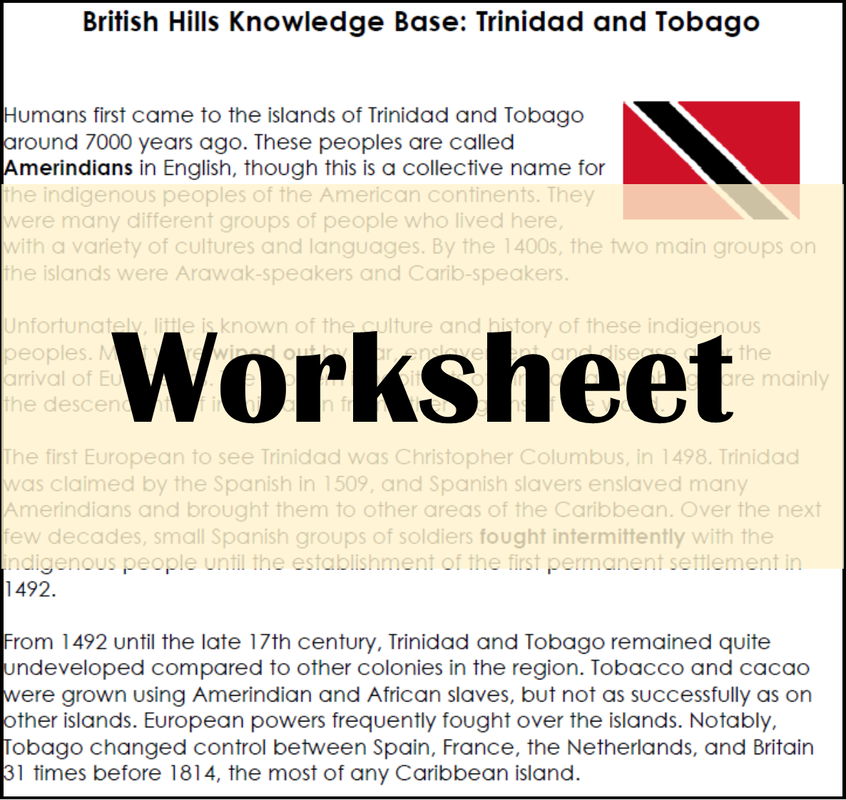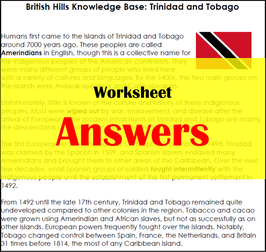Trinidad and Tobago: History
What do you know about the history of Trinidad and Tobago? Find out more below!
What do these words mean?
Match the term in bold in the text above to the meaning:
|
Amerindians
wiped out fought intermittently major turning point instituted a policy tax breaks slave plantations slavery was abolished corporal punishment major oil producer universal suffrage oil boom |
slavery was made illegal
physical punishment e.g. whipping, beating, torture a nation that controls and sells a lot of oil a time of high oil prices & demand for oil, creating wealth for oil producers Name for the groups of indigenous peoples of the American continents. destroyed, eradicated discounts on or freedom from tax for a limited time a large farm or agricultural site where slaves were forced to work stopped and started fighting at many different times the right for almost all people to vote regardless of race, sex, beliefs etc. an important event that changed history created a policy, made a policy |





